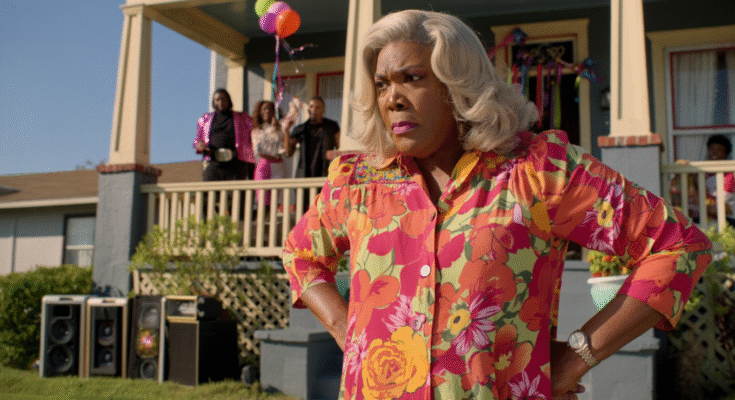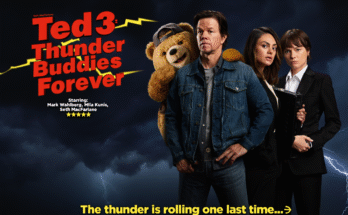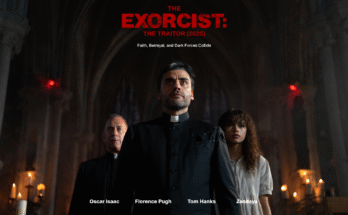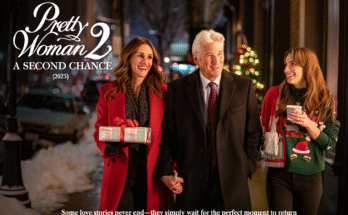Tyler Perry is back behind the wheel of pure chaos, and this time, Madea has traded in courtroom drama and family feuds for the deceptively quiet life of the suburbs. Madea and the Damn Neighbor (2025) might sound like a small story — a feud between next-door rivals — but under Perry’s direction, it explodes into one of the funniest, most fast-paced, and unexpectedly heartfelt comedies of his entire Madea saga.
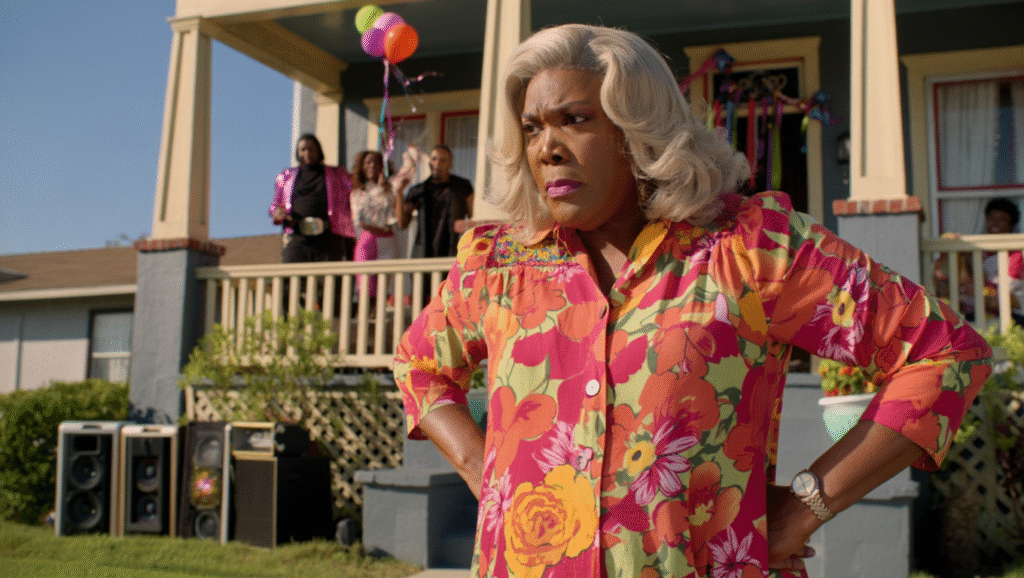
The film opens with Madea (Tyler Perry) doing the unthinkable: retiring from drama. She’s moved into a peaceful neighborhood, determined to spend her golden years tending to her roses, sipping sweet tea, and hollering at squirrels when necessary. But serenity has never been Madea’s strong suit — and peace doesn’t stand a chance once Gabrielle Union’s character, Rochelle, moves in next door. Rochelle is the picture of perfection: a luxury car, flawless landscaping, and a smile that hides sharp edges. It’s only a matter of time before her “friendly” competitiveness turns into a full-blown war.
The first act is a masterclass in escalating comedy. What begins as a harmless dispute over a shared fence quickly spirals into pure suburban anarchy. Rochelle “accidentally” trims Madea’s roses. Madea retaliates by hosting a barbecue that lasts all night — complete with karaoke and fireworks. Then comes the infamous bake-off from hell, a sequence so outrageous it’ll have audiences howling: burnt pies, sabotaged ovens, and a food-fight finale that belongs in comedy history. Tyler Perry directs the chaos with a confident rhythm — fast, funny, but never losing sight of the story’s emotional undercurrent.
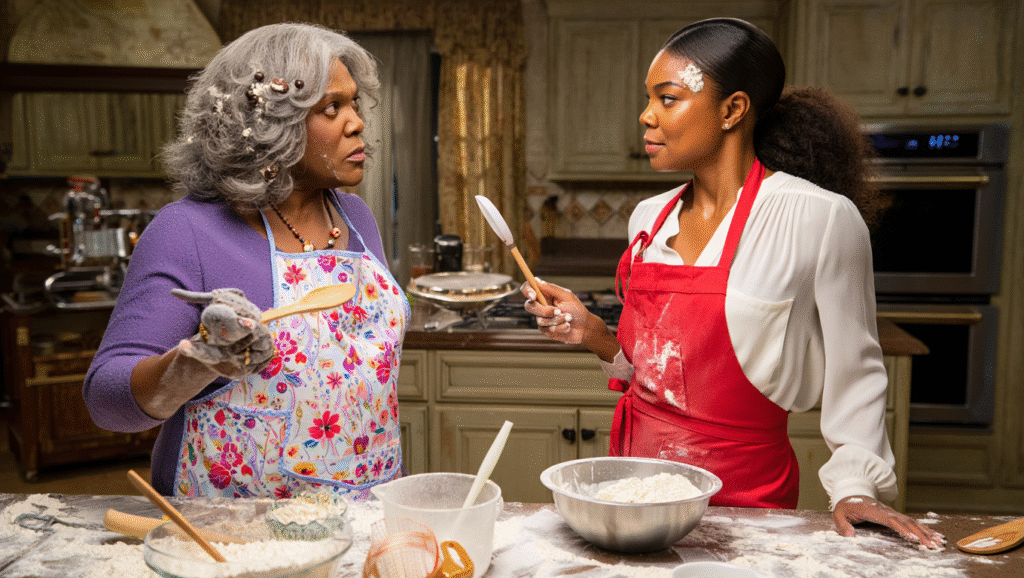
Gabrielle Union is brilliant as Rochelle, giving the role just the right balance of sophistication and snark. Her chemistry with Perry crackles from their very first argument. What could’ve been a one-dimensional “villain” becomes something far more layered — a woman masking her loneliness and frustration behind suburban perfection. As the rivalry intensifies, Union allows flashes of vulnerability to peek through, making her eventual friendship with Madea both hilarious and genuinely touching.
Enter Kevin Hart as Leroy, the neighborhood’s self-proclaimed “handyman extraordinaire.” Every time he appears, disaster follows — leaking pipes, exploding light fixtures, even a lawnmower incident that could’ve easily turned tragic if it weren’t so absurdly funny. Hart’s manic energy contrasts perfectly with Madea’s no-nonsense attitude. Their exchanges are gold — a rapid-fire collision of sarcasm, panic, and misplaced confidence. It’s slapstick comedy at its best, but it also reveals a surprising truth: sometimes the people who break everything end up fixing the most important things.
The movie’s middle act finds heart amid the chaos. Beneath the insults and pranks, both women begin confronting what their feud really represents — unhealed wounds, pride, and fear of change. In one of the film’s most poignant scenes, Madea finds Rochelle crying in her car late at night, whispering that she just “wanted to feel seen again.” Perry handles the moment with tenderness, letting the laughter give way to quiet humanity. Madea’s blunt, funny, and deeply wise response — “Baby, you don’t need to be seen. You need to see yourself first” — is vintage Tyler Perry: comedic honesty wrapped around real emotional depth.
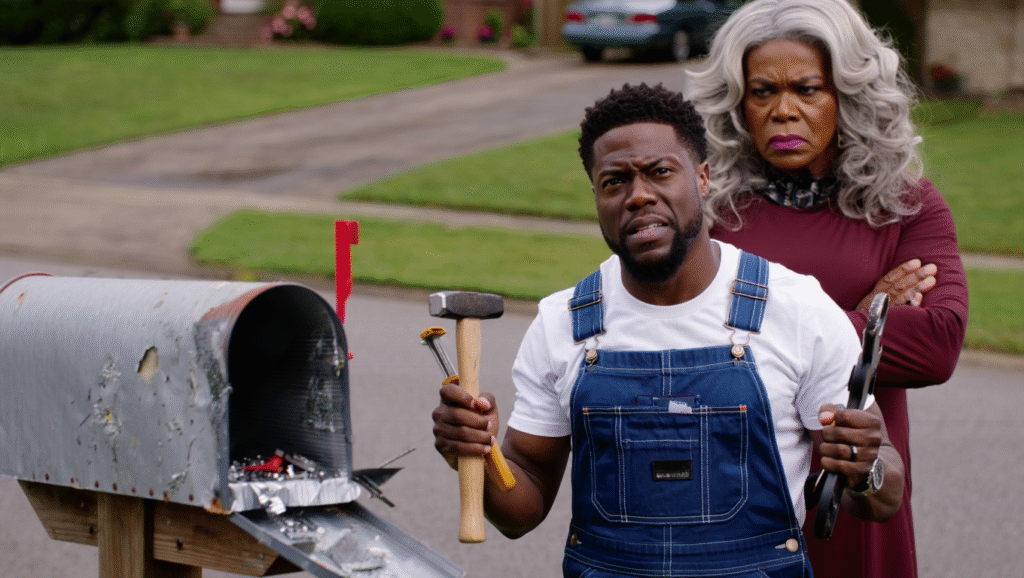
Visually, Madea and the Damn Neighbor shines. The sunny suburban streets, pastel houses, and well-kept lawns create a cheerful backdrop for the mayhem. Perry and cinematographer Brett Pawlak use bright colors and dynamic camera movement to amplify the sense of manic energy. The neighborhood itself becomes a character — one that reflects the tension between control and chaos, order and authenticity.
The supporting cast also adds spark. Cassi Davis (Aunt Bam) and David Mann (Mr. Brown) return for brief but hilarious appearances, their antics injecting old-school Perry humor into the suburban setting. There’s even a cameo from Oprah Winfrey as the neighborhood association president — a brief but memorable moment that brings down the house.
As the final act unfolds, the film embraces full-blown comic spectacle. A neighborhood block party gone wrong turns into an explosion of misunderstandings, mistaken identities, and heartfelt reconciliations. By the time Madea and Rochelle join forces to save the neighborhood from being sold to a shady developer, the movie becomes not just a comedy of errors, but a story about community — and how chaos, when shared, can become connection.
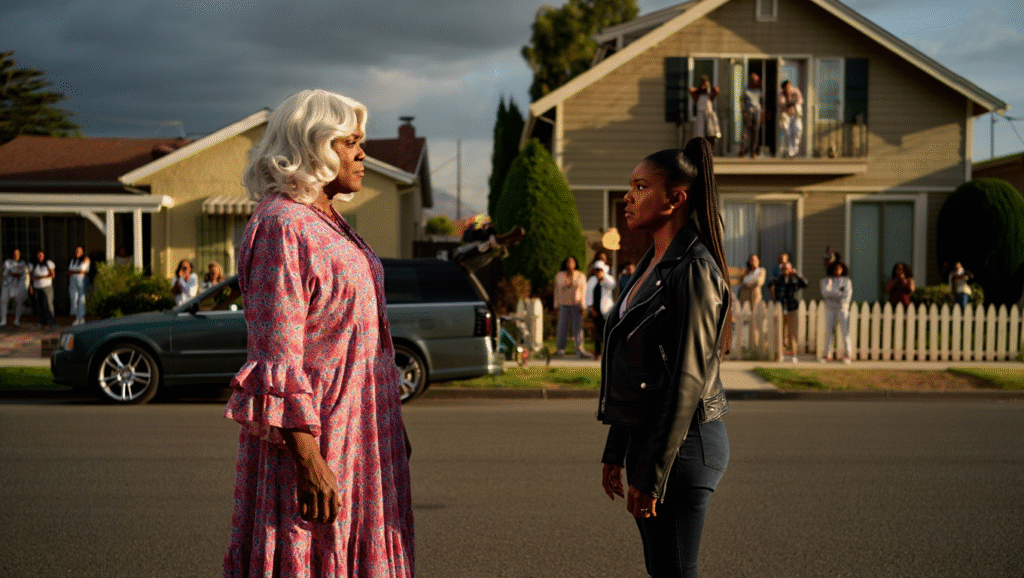
Perry’s direction strikes the perfect tone between satire and sincerity. He’s poking fun at the modern obsession with appearances — perfect lawns, perfect lives — while reminding us that imperfection is where joy lives. The humor lands sharp but never cruel, and every punchline feels earned by character rather than caricature.
⭐ Rating: 4.7/5 — Wild, witty, and full of heart. Tyler Perry turns suburban warfare into a masterclass in laughter and love. Madea’s back — and she’s not about to let anyone mess with her peace.
